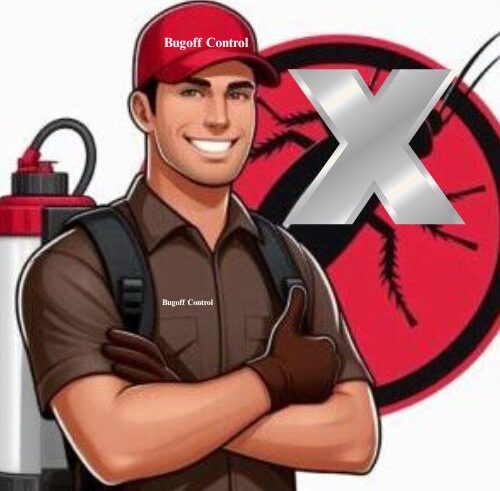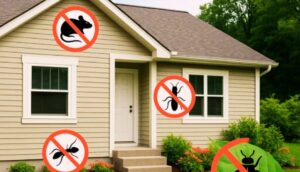Best Natural Slug and Snail Control for Vegetable Gardens — Top 5 Reviews

If you’re struggling with slugs and snails munching on your lettuce, strawberries, or hostas, you’re not alone! .Finding the best natural slug and snail control for vegetable gardens can feel overwhelming.
But I’ve tested and reviewed five top-rated products to help protect your plants without harming the environment.
These products are pet-safe, child-safe, and effective for both home and organic gardeners.
Affiliate Disclosure: This page contains affiliate links. If you buy through my links, I may earn a small commission at no extra cost to you.
As an Amazon Associate, I earn from qualifying purchases.
🌱 1. Sluggo Slug & Snail Killer
Rating: ★★★★★
Sluggo is one of the most popular natural slug and snail control options on the market.
It uses iron phosphate, a naturally occurring compound that’s safe for pets, wildlife, and children.
Slug Collars are popular and are effective in protecting your garden plants from slugs and snails.
✅ Easy to apply as granules around plants
✅ Works for up to 4 weeks, even after rain
✅ OMRI-listed for organic gardening
Results: Within a few days, I saw fewer slugs, and after one week, no visible damage on my lettuce or basil. Check Price & Read Reviews on Amazon.
Pros: Long-lasting, rainproof, and organic approved
Cons: Slightly more expensive than conventional pellets
🌱 2. Copper Tape Barrier
Rating: ★★★★☆
Copper tape works by creating a mild electric charge when slugs and snails touch it, deterring them from crossing.
This barrier method is great for raised beds, pots, and greenhouse benches.
✅ Chemical-free, long-lasting barrier
✅ Easy to stick around pots and bed edges
✅ Safe for kids, pets, and pollinators
Results: Slugs stopped invading my strawberry pots completely after I applied copper tape. Check Price & Read Reviews on Amazon.
Pros: Durable, reusable, non-toxic
Cons: Not suitable for large open beds
🌱 3. Diatomaceous Earth (Food Grade)
Rating: ★★★★☆
Diatomaceous earth (DE) is a fine powder made from fossilized algae that physically damages slugs’ soft bodies, causing them to dry out. Check Price & Read Reviews on Amazon.
✅ Apply as a dry dust around plant bases
✅ Safe for organic gardens, pets, and humans
✅ Works on other soft-bodied insects too
Results: I noticed fewer slug trails and holes on my squash within a few days of using DE.
Pros: Multi-purpose, natural, affordable
Cons: Needs reapplication after rain or watering
🌱 4. Beer Trap
Rating: ★★★★☆
The classic beer trap might seem basic, but it works like a charm—slugs can’t resist the smell of yeast, and once they crawl in, there’s no way back out.
Esschert Design Snail Shaped Ceramic Slug Trap is a beautifully designed product that will help to eliminate snails
✅ DIY-friendly or store-bought traps available
✅ Inexpensive and chemical-free
✅ Highly effective at reducing slug numbers
Results: After setting up a few traps around my lettuce bed, I caught 10+ slugs overnight! Check Price & Read Reviews on Amazon.
Pros: Cheap, easy, works fast
Cons: Needs to be emptied and refilled regularly
🌱 5. Nematodes (Phasmarhabditis hermaphrodita)
Rating: ★★★★★
Nematodes are microscopic worms that attack slugs underground. They are a biological control that is safe, eco-friendly, and highly targeted.
✅ Apply water to the soil
✅ Works especially well on small and juvenile slugs
✅ Long-lasting protection (6+ weeks)
Results: Within two weeks, slug numbers dropped significantly in my garden beds. Check Price & Read Reviews on Amazon.
Pros: Natural, soil-friendly, long-term control
Cons: Temperature- and moisture-sensitive; best applied in moist, mild conditions
Conclusion
If you want the best natural slug and snail control for vegetable gardens, you can’t go wrong with these five eco-friendly products.
Whether you prefer a ready-to-use bait like Sluggo, a physical barrier like copper tape, or a biological solution like nematodes, there’s an option to suit every gardener’s needs.
Combine two or more methods for even better protection, and enjoy a slug-free, thriving vegetable garden!
❓ 5 Frequently Asked Questions (FAQs)
1. What is the safest way to control slugs and snails in a vegetable garden?
Using natural methods like iron phosphate pellets (e.g., Sluggo), copper tape, or beer traps is safe for kids, pets, and pollinators.
2. How often should I apply diatomaceous earth for slug control?
Reapply every few days, especially after rain or watering, to maintain its effectiveness.
3. Will copper tape work on all garden beds?
Copper tape works best on raised beds, pots, and containers. It’s less practical for large, open garden areas.
4. Are nematodes safe for organic gardening?
Yes! Nematodes are natural predators of slugs and are safe for organic and eco-friendly gardens.
5. Can I combine different slug control methods?
Absolutely! Combining barriers, baits, and biological controls often gives the best results for long-term slug and snail management.














